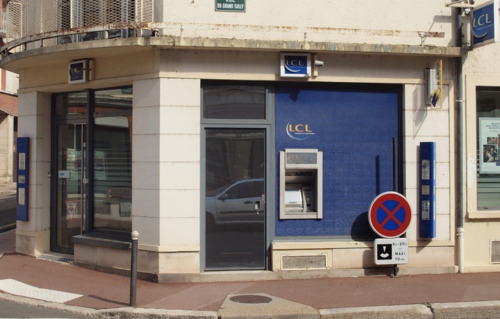Des agences de moins en moins fréquentées
La France comptait près de 39 000 agences bancaires en 2010, contre 36 519 en 2018. Si la décrue est assez faible, elle devrait s’accentuer à l’horizon 2021 et suivre la tendance constatée dans les autres pays européens. En Allemagne par exemple, près d’un quart des guichets ont fermé en 10 ans. Le pays ne compte plus que 33 agences pour 100 000 habitants, selon les données de la Banque centrale européenne, alors que la moyenne de la zone euro s’établit à 39,6 agences bancaires pour 100 000 habitants.
Ces fermetures s’expliquent en partie par la baisse du taux de fréquentation des points de vente. La FBF rapporte qu’en moyenne, un client se rend dans sa banque deux à trois fois par an. L’étude cite également la baisse de la rentabilité et de la souscription des produits en agence.
La concurrence des banques en ligne et des applications mobiles
Après plusieurs années de baisse, la disparition des agences bancaires devrait s’accélérer en France. En mars 2019, LCL annonçait la suppression d’une centaine de ses agences d’ici 2021. Pour l’heure, près de 20 % des guichets de la banque ont déjà disparu en moins de 5 ans. Le secteur multiplie par ailleurs les projets de suppression d’emplois : 530 pour la Société Générale et 446 pour BNP Paribas. De son côté, HSBC envisage de supprimer son activité de détail en France.
Ces décisions sont principalement liées à la multiplication des banques en ligne et des applications mobiles qui permettent de bénéficier de services hors de ces agences. Parmi les néobanques qui font de l’ombre aux banques traditionnelles, il y a Nickel, qui donne la possibilité à ses clients d’ouvrir un compte dans les bureaux de tabac partenaires. Sans découvert possible, Nickel revient deux à trois fois moins cher qu’un compte bancaire ordinaire. En effet, l’offre, qui est accessible dès 20 euros par an, rencontre un réel succès : 1,5 million de comptes ont été ouverts depuis 2014. L’engouement est tel que BNP Paribas a racheté la startup en 2017.
Selon les résultats du premier Observatoire des banques en ligne et néobanques publié en octobre 2019, 44 % des clients utilisent le compte qu’ils détiennent auprès de ces acteurs pour y domicilier leurs revenus. Il faut dire que les banques mobiles disposent de plusieurs atouts, dont la réactivité du service client et les tarifs attractifs. Pour rester compétitifs, les grands réseaux investissent massivement dans le digital.
